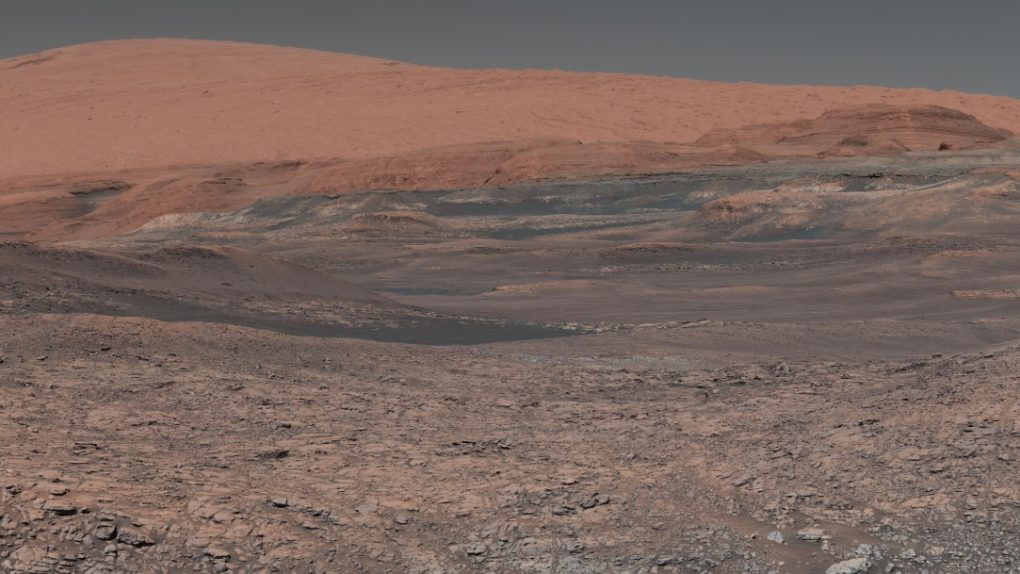Mars isn’t exactly known for being a cloudy place. It’s dry, dusty, and barren, but the planet does indeed have a bit of cloud cover. Figuring out why those clouds exist and where they came from has posed a challenge for scientists, but a new study published in Nature Geoscience suggests that clouds on Mars are the result of visitors from elsewhere. Namely, meteors.
The paper reveals that the faint cloud cover hovering in the Martian atmosphere at an altitude of around 18 miles may actually be leftover “meteoric smoke” which was created by space rocks speeding through the planet’s upper atmosphere.
“We’re used to thinking of Earth, Mars and other bodies as these really self-contained planets that determine their own climates,” graduate student Victoria Hartwick of the University of Colorado Boulder, lead author of the new study, said in a statement. “But climate isn’t independent of the surrounding solar system.”
The same mechanisms that create clouds on Earth just aren’t possible on Mars due to the utter lack of surface water. For clouds to exist, they may be coming from somewhere, which is where the meteor explanation fits in.
As the research team notes, Mars is bombarded with various objects on a daily basis, most of which are tiny meteors. Computer simulations have shown that as those objects come crashing through the planet’s atmosphere, they release dust particles that gather and form thin clouds. This, the scientists explain, is likely enough to give the planet the wispy clouds that have been observed on Mars.
When humans eventually travel to the Red Planet, taking things like climate into consideration is going to be quite important. Knowing how clouds form on Mars today may play a role in those future missions, and perhaps even help scientists come up with ways to make Mars a bit more comfortable for those who make the trip.








